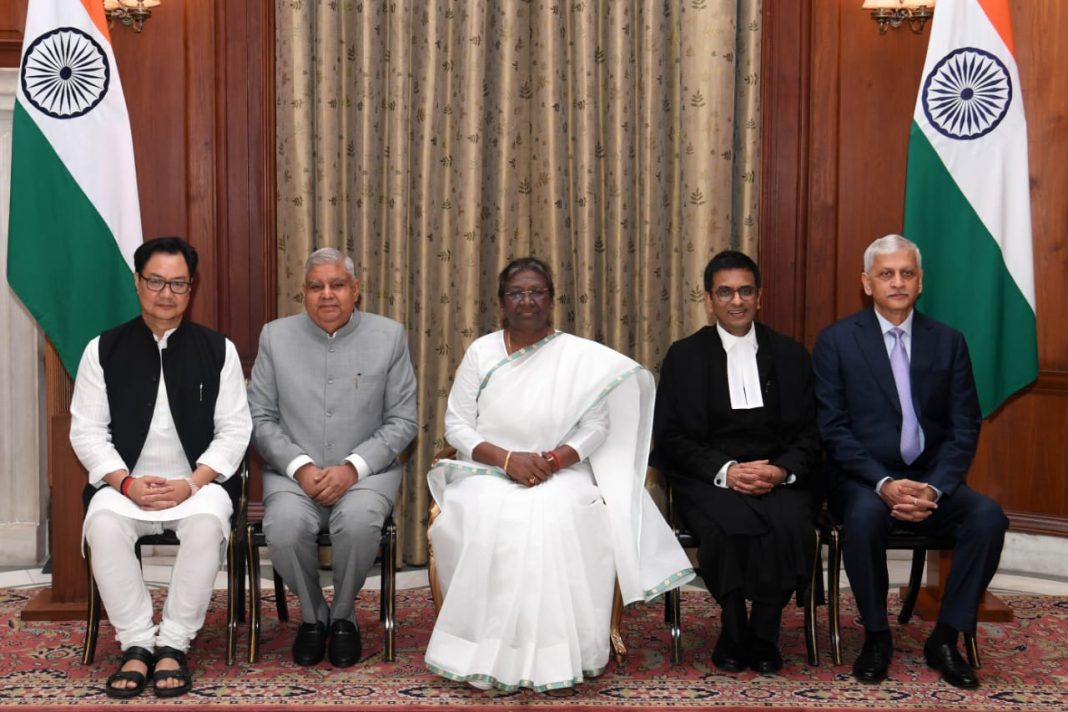Former Chief Justice of India U.U. Lalit has said that there was nothing unusual in listing of a case for Saturday because as the Master of Roster, his job was to ensure the availability of a Bench, whenever the occasion demanded.
He expressed these views while speaking to a news channel on Sunday, in reference to the listing of case related to former Delhi University professor G.N. Saibaba G.N. Saibaba before the Supreme Court on October 15 (Saturday).
Justice Lalit said he was not aware about the issue since he rose early on October 14.
As per the former CJI, the Bench comprising him and Justice Hemant Gupta rose early that day, at around 1:00 pm, since it was the last working day of Justice Gupta and he was sitting with him as ceremonial gesture.
He said the matter was then listed before a Bench headed by Judge number 2, Justice D.Y. Chandrachud at around 3:45 pm. Justice Chandrachud directed constitution of a Bench on Saturday, subject to the orders of the then CJI.
Justice Lalit said the Registry officials approached him at around 4:30 pm and said that there has been an order contemplating formation of a bench on Saturday.
He said he then went for the farewell function of Justice Gupta, where Justice Lalit met all the Supreme Court Judges.
As for the listing, the former CJI said he met Justice Chandrachud at the event and asked him about the order. Justice Chandrachud said yes to passing the particular order, but refused to be part of the Saturday Bench, saying he had prior commitments, added the former CJI.
Justice Lalit then asked Justice Ajay Rastogi, Justice B.R. Gavai and Justice Ravindra Bhat, who were all standing nearby. All of them refused, saying they had other engagements.
As per the former CJI, Jutice Ravindra Bhat offered himself as default arrangement, in case no one else was available for October 15.
“Justice Surya Kant also refused. Justice Bela Trivedi was standing next to him. I asked her and she said yes,” noted Justice Lalit. He said Justice MR Shah also said yes and that is how the two of them formed the Saturday Bench.
As per the former CJI, neither of them-Justice Lalit, Justice Shah or Justice Trivedi, knew anything about the matter, or the proceedings of the court on that day.
On October 15, the bench of Justice M.R. Shah and Justice Bela M. Trivedi had suspended the decision of the Nagpur Bench of the Bombay High Court, which acquitted former Delhi University professor G.N. Saibaba in an alleged case of links with Maoists.
The special sitting was held at 11 am on a Saturday.
The Apex court said it was the right case to exercise power under Section 390 of the Code of Criminal Procedure and suspend the order of the High Court.
The Court further said that the medical grounds of the accused were rejected by the High Court during a bail plea earlier.
The Court, however, said that the accused would be at liberty to move a bail application.
The Apex Court not only suspended the judgement, but also has turned down the plea by Saibaba to be kept under house arrest on medical grounds, instead of being put in jail.
The Court said that the bail plea by accused was rejected by the High Court in 2020 on medical grounds, which was pressed then as well.
The decision to reject the house arrest plea was taken after Solicitor General (SG) Tushar Mehta, appearing for the Maharashtra government, strongly objected to the same.
The Solicitor General argued that the there has been a recent tendency from urban naxals to seek house arrests.
Maharashtra government contended that failure to grant sanction cannot lead to acquittal in view of Section 465 of the Code of Criminal Procedure.
The Apex Court noted and said that the High Court has not considered the case on merit, but acquitted the accused due to lack of sanction of the Central government required under Section 45 of the Unlawful Activities Prevention Act (UAPA).
The Court also opined that the accused was convicted after detailed appreciation of evidence.
The bench also added that the offences were very serious and against the interest of the society, sovereignty and integrity of the nation.


